Abstract
Data from interview surveys of households or health facilities are used to assess community parameters such as health status and factors related to the ability and willingness of individuals to pay for health services. Although the effect of sample size on confidence intervals is generally well understood by the survey designers and policy-makers who use the results, the typical survey is also subject to non-sampling errors whose magnitude may exceed that of the sampling errors. The non-sampling errors associated with surveys are only rarely assessed and reported, even though they may have a major effect on the interpretation of findings. The present study reports the non-sampling errors associated with a household survey in Sierra Leone by comparing the results of reinterviews with the responses given during the original interviews. Certain types of questions were subject to greater non-sampling errors than others. The findings should be of use to designers of similar surveys and to those who rely on such surveys for making policy decisions.
Full text
PDF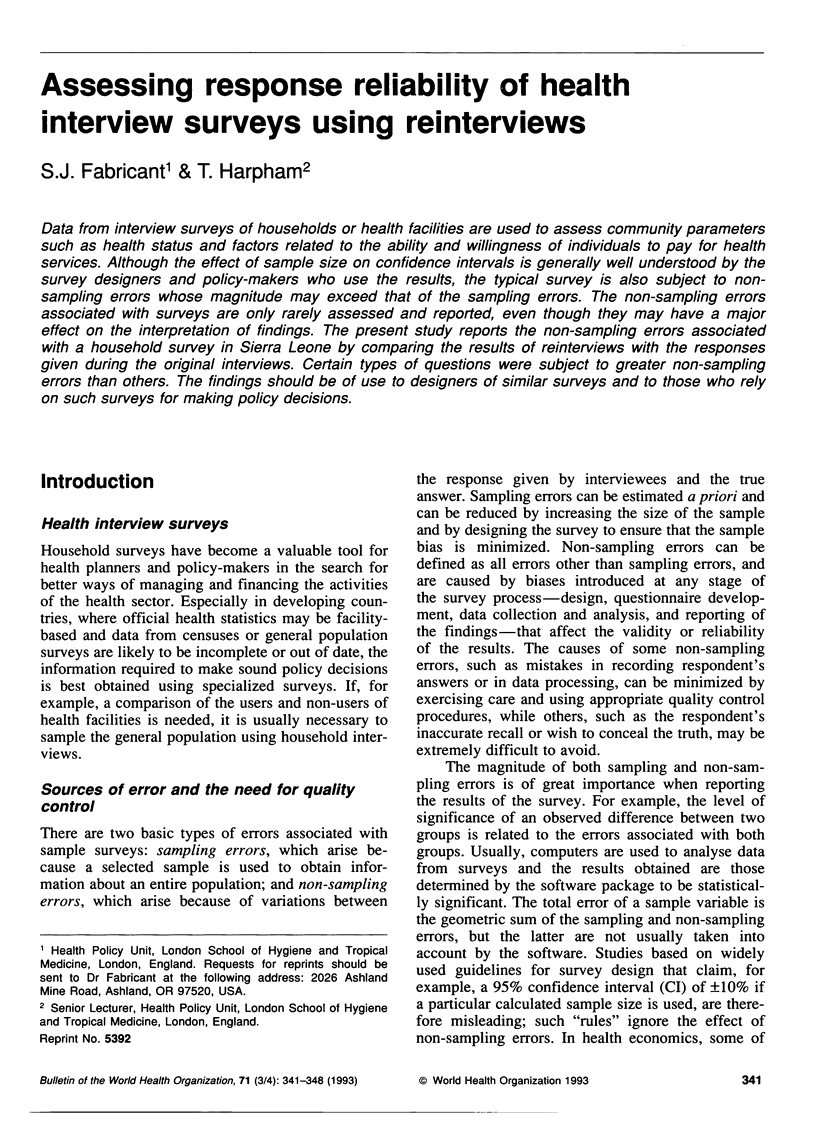
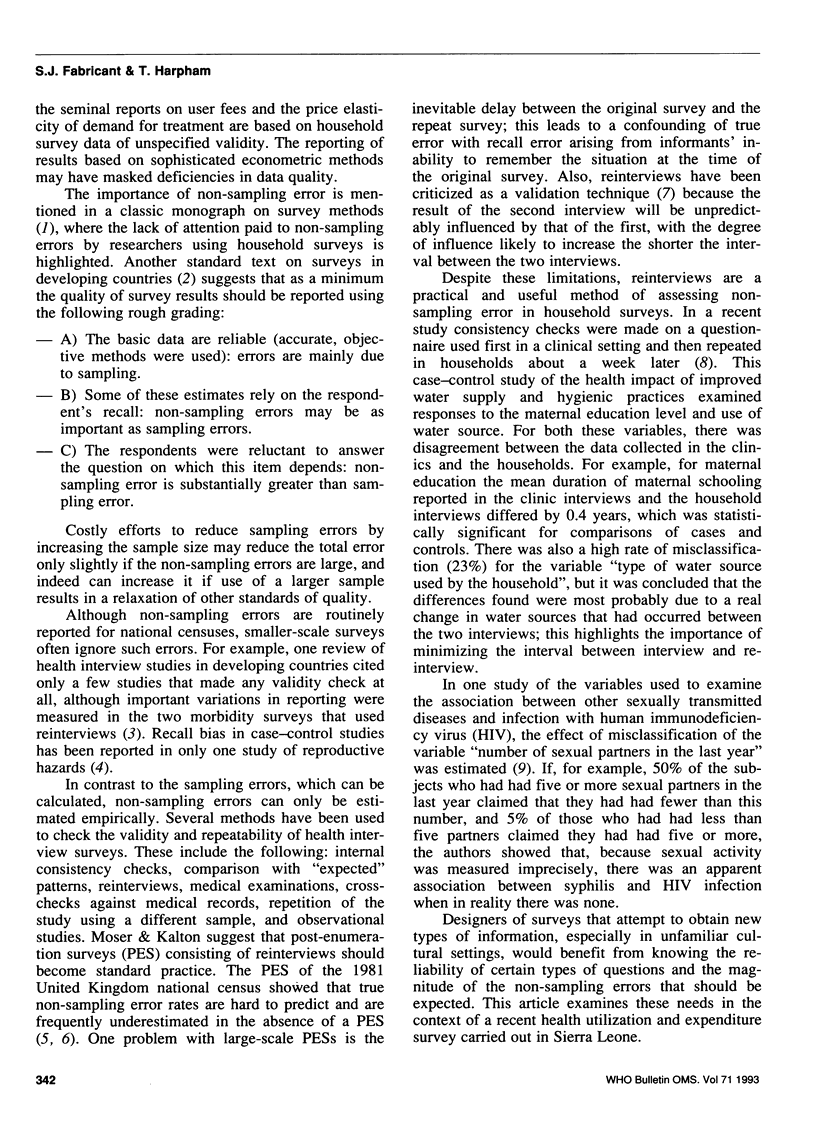
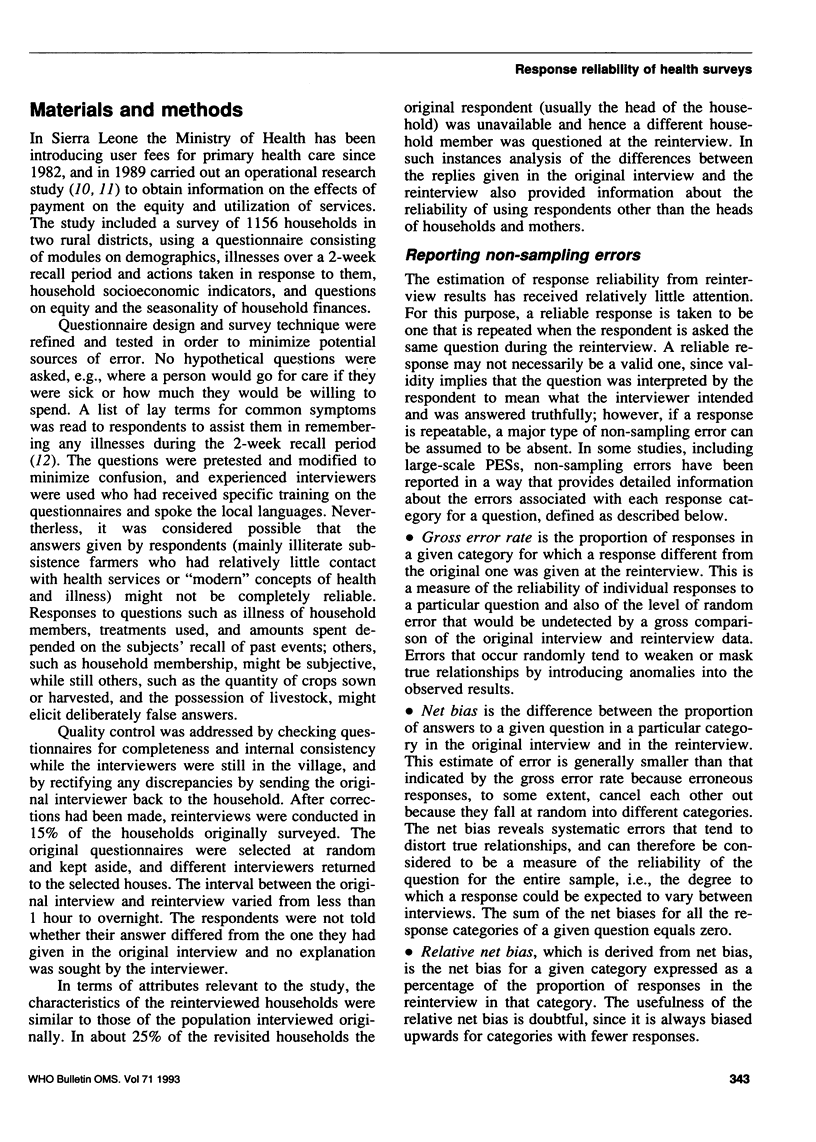
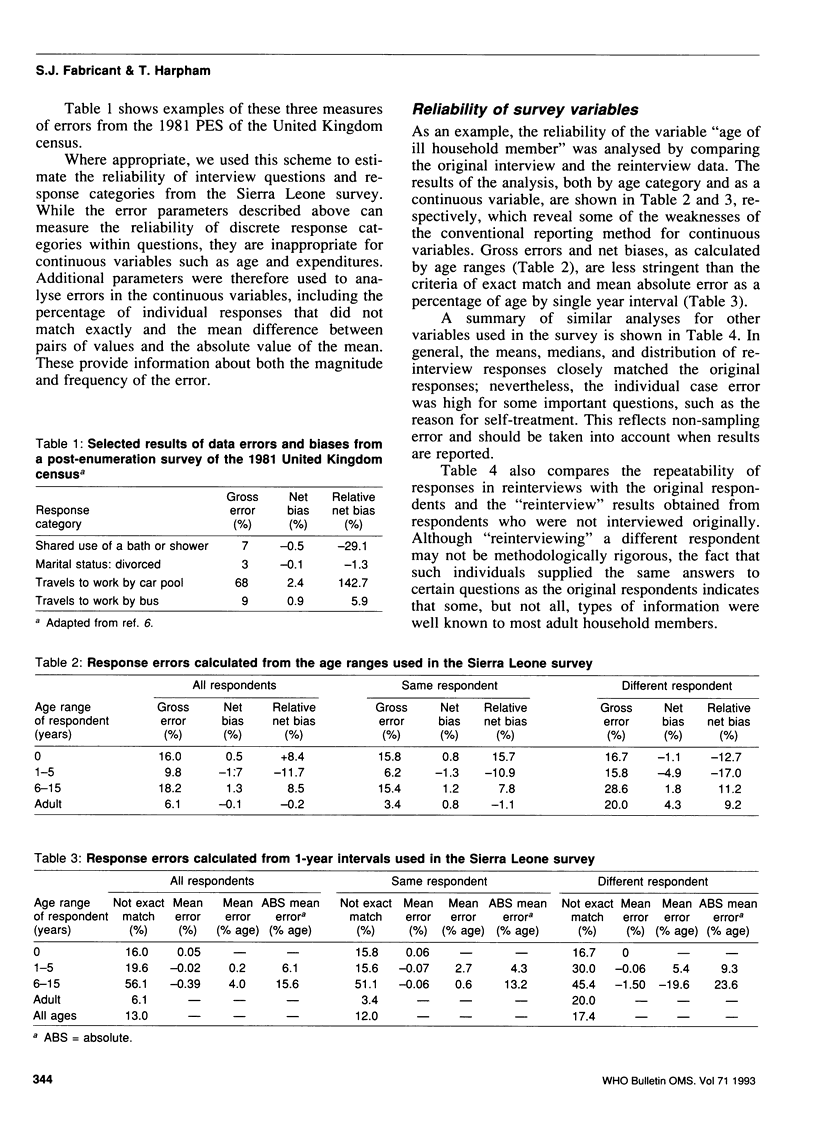
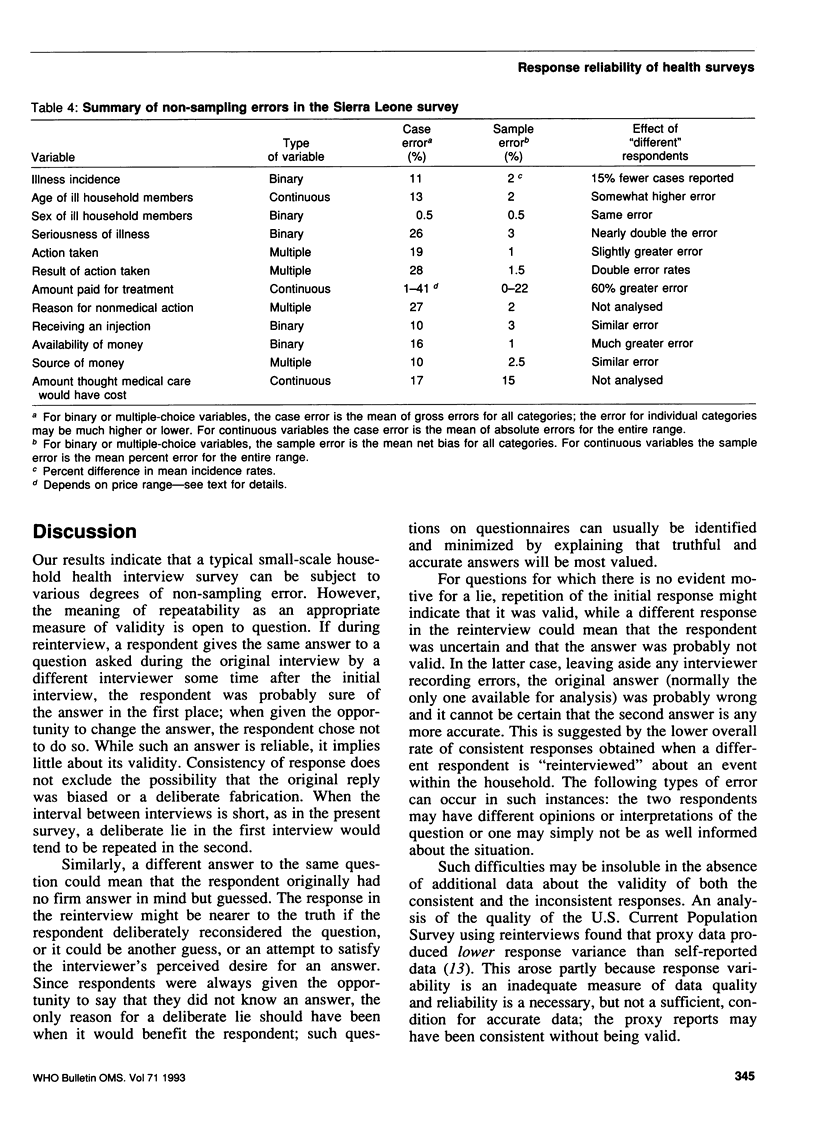
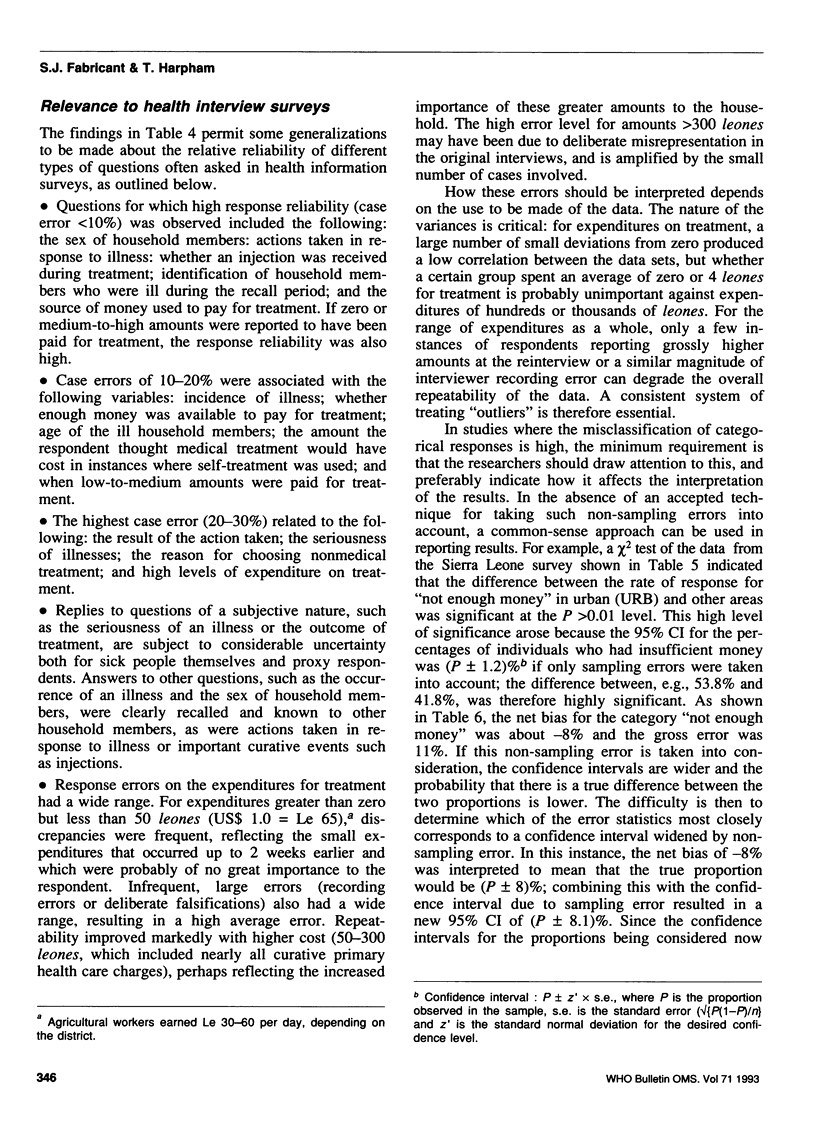

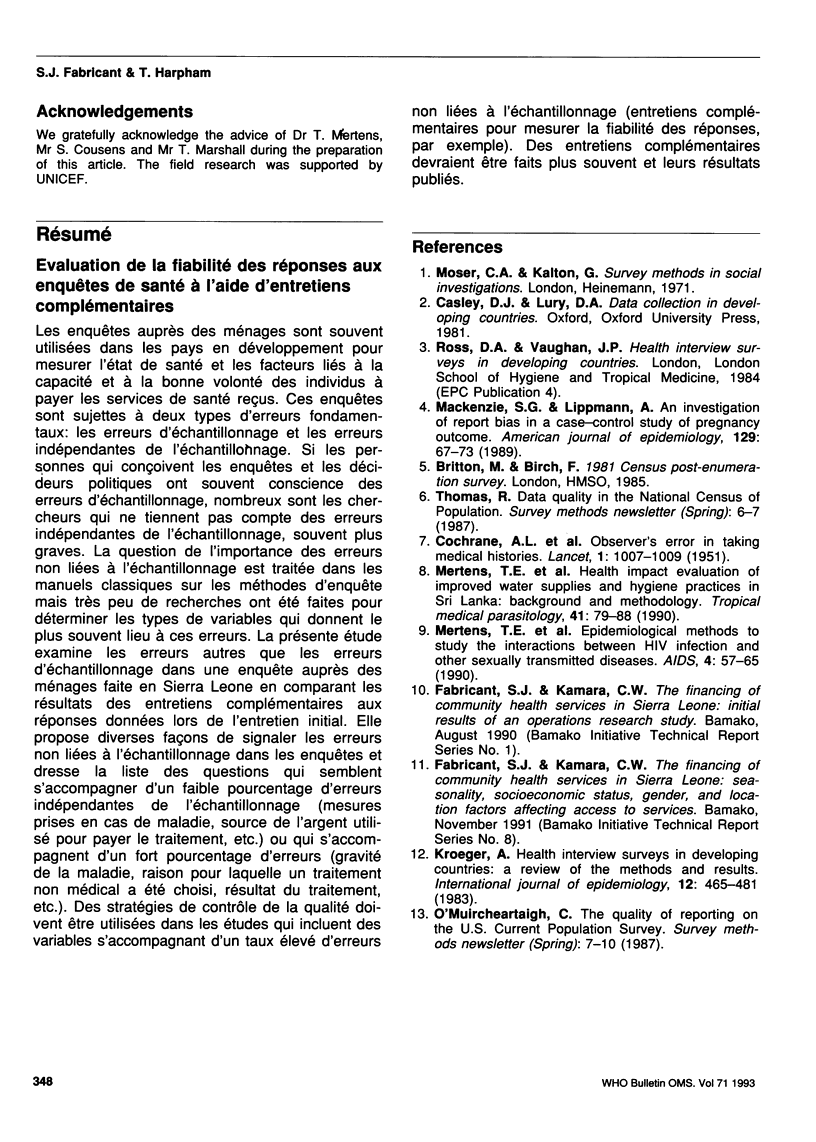
Selected References
These references are in PubMed. This may not be the complete list of references from this article.
- COCHRANE A. L., CHAPMAN P. J., OLDHAM P. D. Observers' errors in taking medical histories. Lancet. 1951 May 5;1(6662):1007–1009. doi: 10.1016/s0140-6736(51)92518-4. [DOI] [PubMed] [Google Scholar]
- Kroeger A. Health interview surveys in developing countries: a review of the methods and results. Int J Epidemiol. 1983 Dec;12(4):465–481. doi: 10.1093/ije/12.4.465. [DOI] [PubMed] [Google Scholar]


